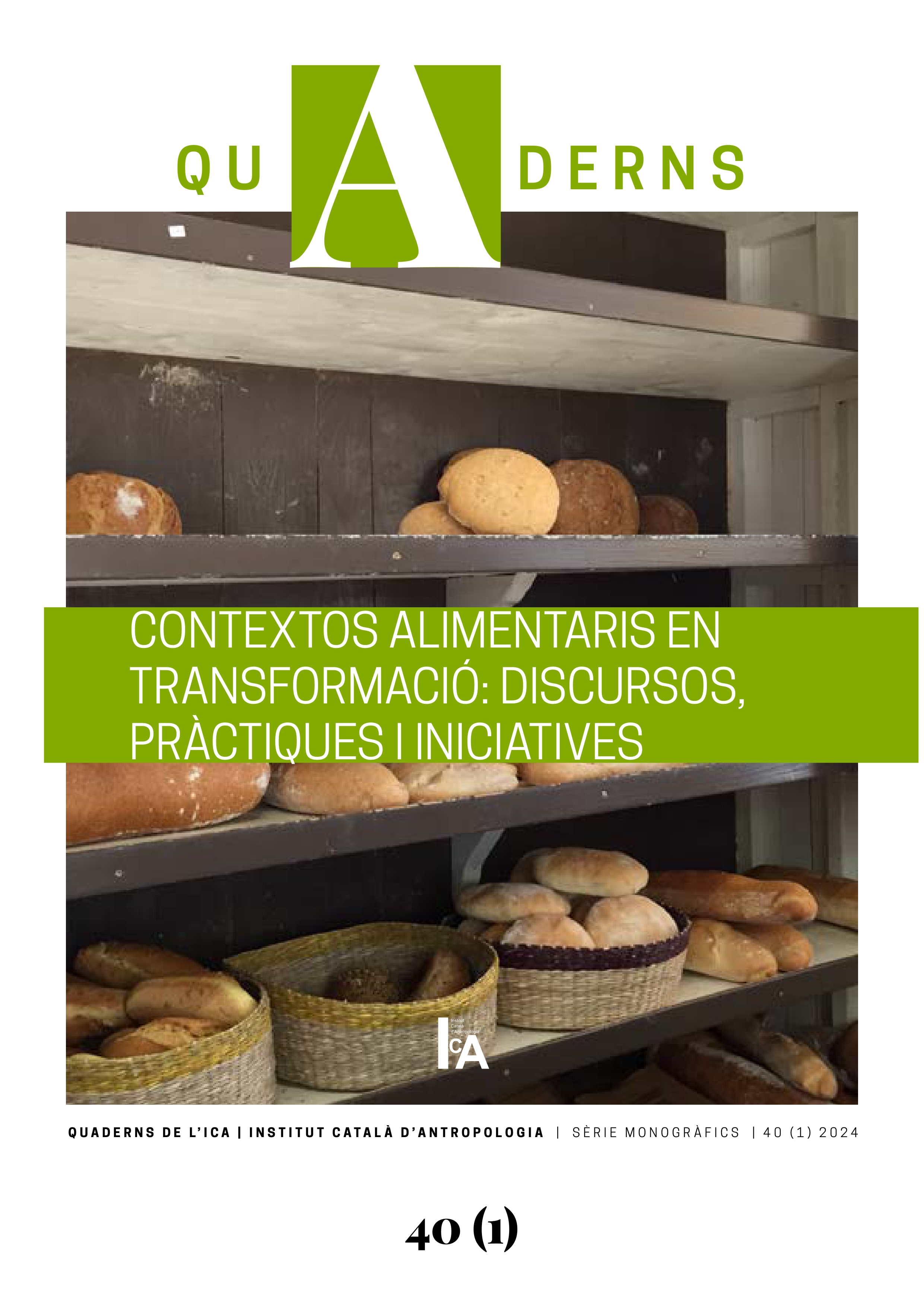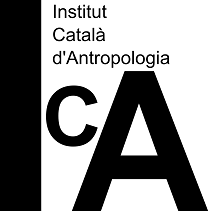Un)doing gender, solving meals: an analysis of work and care among older people in Spain
DOI:
https://doi.org/10.56247/qua.471Keywords:
Precarization, care and housework, ageing, gender, food securityAbstract
Based on an ethnographic analysis of the food itineraries of a group of elderly people in Spain, this study examines the ways in which they manage their meals, considering, on the one hand, the effects of growing socio-economic constraints and, on the other, possible gender differences.
The main objective is to elucidate whether both issues
are at the root of certain forms of food insecurity among poorer groups and particularly among women. We show that tasks related to food provisioning, selection, preparation, distribution, and consumption favours both gender interactions and asymmetries and, although they may vary over time depending on life circumstances, they are incorporated by people according to the normative frameworks that in each society produce the sexual division of labour and areas of responsibility. We conclude that in contexts of crisis, being/having been the person responsible for family meals places women and men in a position of greater or lesser vulnerability concerning access to and consumption of healthy, safe, and sufficient food.
Downloads
Global Statistics ℹ️
|
292
Views
|
168
Downloads
|
|
460
Total
|
|
References
Allen, P. y Sachs, C. (2012). Women and Food Chains 1: The Gendered Politics of Food. En W. Forson, C. Counihan, C. (Eds.), Taking Food Public Redefining Foodways in a Changing World (pp. 23-40). Routledge.
Comas d’Argemir D. y Bofill-Poch, S (Eds.) (2022). Cuidar a mayores y dependientes en tiempos de la covid-19. Lo que nos ha enseñado la pandemia. Tirant Humanidades.
Conde-Caballero D. et al. (2021). Hambre, Política(s) y Cooperación al desarrollo en la Guatemala del siglo XXI. Una mirada crítica desde la Antropología. Revista de Antropología Social, 30(2), 109-117. DOI: https://doi.org/10.5209/raso.77893
Counihan, C. (1999). The Anthropology of Food and Body. Gender, Meaning and Power. Routledge
Díaz, C., y García, I. (2021). Alimentación, pobreza y desigualdad. Repensando la privación. En C. Díaz, y I. García (coords.). El malestar con la alimentación (205-216). Editorial Trea.
Durán, P., Muñoz, A., Llobet, M. y Magaña-González, C.R. (2021). Alimentación y desigualdad en Barcelona: itinerarios de precarización y respuestas ante la crisis. Revista de Antropología Social, 30(2), 151-165. DOI: https://doi.org/10.5209/raso.77907
EAPN (2023). El Estado de la Pobreza 2023. European Anti-Poverty Network (EAPN) España.
Escajedo, L, Rebato, E. y López, A. (2018). Derecho a una Alimentación Adecuada y Despilfarro alimentario. Tirant lo Blanch.
Gracia-Arnaiz, M., Garcia, M. Campanera, M. (2021a). Food Itineraries in the Context of Crisis in Catalonia (Spain): Intersections between Precarization, Food Insecurity and Gender. Social Sciences, 10, 352. DOI: https://doi.org/10.3390/socsci10100352
Gracia-Arnaiz, M. Casadó, L.; Campanera, M. (2021b). Antropologías del hambre: la (in)seguridad alimentaria en contextos de precarización. Revista Antropología Social, 30(2), 93-108. DOI: https://doi.org/10.5209/raso.77892
INE (2022) Encuesta de Características Esenciales de la Población y Viviendas del INE (2022) https://www.ine.es/dyngs/INEbase/es/operacion.htm?c=Estadistica_C&cid=1254736177092&menu=ultiDatos&idp=1254735572981
Kramer, F.B., Gracia-Arnaiz, M. (2015). Alimentarse o nutrirse en un comedor social en España: reflexiones sobre la comensalidad. Demetra: Alimentação, Nutrição & Saúde, 10(3), 455-466. DOI: https://doi.org/10.12957/demetra.2015.16173
Lorey, I. (2015). State of insecurity: Government of the precarious. Verso Books.
Mattingly, C., & Garro, L. C. (2000). Narrative and the cultural construction of illness and healing. Univ of California Press. DOI: https://doi.org/10.1525/california/9780520218246.001.0001
Mauriello, M., Cottino, G (2022). Feeding gender: Introduction. Anthropology of food, 16, https:// doi.org/10.4000/aof.13799 DOI: https://doi.org/10.4000/aof.13799
McIntosh, W.L (1995). World hunger as a social problem. En D. Maurer y J. Sobal (eds.) Eating Agendas. Aldine de Gruytier.
Martínez Buján, R., Jabbaz, M. y Soronellas, M. (2022). Envejecimiento y organización social del cuidado en España. ¿En qué contexto irrume la Covid? Envejecimiento y organización social del cuidado en España. ¿en qué contexto irrumpe la Covid?, en Comas d’Argemir D. y Bofill- Poch, S (Eds.) (2022) Cuidar a mayores y dependientes en tiempos de la covid-19. Lo que nos ha enseñado la pandemia. Tirant Humanidades.
Ministerio de Sanidad—Sanidade en datos—Tabla: Habitantes, envejecimiento e indicadores de bienestar según comunidad autónoma. (n.d.). Recuperado 29 Febrero 2024, de https://www.sanidad.gob.es/gl/estadEstudios/sanidadDatos/tablas/tabla.htm
Moragues-Faus, A.,y Magaña-González, C. (2022). Alimentando un futuro sostenible: Estudio sobre la inseguridad alimentaria en hogares españoles antes y durante la COVID-19. Universidad de Barcelona-Fundación Daniel y Nina Carasso. Barcelona.
Novianti, R., Suarman, y Islami, N. (2023). Parenting in Cultural Perspective: A Systematic Review of Paternal Role Across Cultures. Journal of Ethnic and Cultural Studies, 10(1), 22–44. https://www.jstor.org/stable/48718233 DOI: https://doi.org/10.29333/ejecs/1287
Parsons, J. M. (2015). Gender, class and food: families, bodies and health. Palgrave Macmillan. DOI: https://doi.org/10.1057/9781137476418
Pérez Díaz, J., Ramiro, D., Aceituno, P., Muñoz, C., Bueno, C., Ruiz-Satnacruz, S., Fernández, I., Castillo, A., De las Obras-Loscertales, J. y Villuendas, B. (2022). Un perfil de las personas mayores en España 2022. Indicadores estadísticos básicos (Informes de Envejecimiento en red, 29). Instituto de Economía, Geografía y Demografía, Centro de Ciencias Humanas y Sociales (CSIC). http://envejecimiento.csic.es/documentos/documentos/enredindicadoresbasicos2022.pdf
Pérez Orozco, A. (2014). Subversión feminista de la economía. Aportes para un debate sobre el conflicto capital-vida. Traficantes de sueños.
Sachs, C. y Patel-Campillo, A. (2014). Feminist Food Justice: Crafting a New Vision. Feminist Studies, Special Issue: Food and Ecology, 40(2), 396-410. DOI: https://doi.org/10.1353/fem.2014.0008
Samtleben, C. y Müller, K. (2022). Care and careers: Gender (in)equality in unpaid care, housework and employment. Research in Social Stratification and Mobility, 77, 100659. https://doi.org/10.1016/j.rssm.2021.100659 DOI: https://doi.org/10.1016/j.rssm.2021.100659
Shepherd, B. (2012). Thinking critically about food security. Security Dialogue, 43(3), 195-212. DOI: https://doi.org/10.1177/0967010612443724
Skeggs, B. (2019). Mujeres respetables: clase y género en los sectores populares. Universidad Nacional de General Sarmiento.
Slocum, R. y Cadieux, K. (2015). Notes on the practice of food justice in the US: understanding and confronting trauma and inequity. Journal of Political Ecology, 22(1), 27-52. DOI: https://doi.org/10.2458/v22i1.21077
Vizcarra, I. (2008). Entre las desigualdades de género: un lugar para las mujeres pobres en la seguridad alimentaria y el combate al hambre. Argumentos, 21(57), 141-173.
Downloads
Published
How to Cite
Issue
Section
License
Copyright (c) 2024 © 2024 ICA. © 2024 Mabel Gracia-Arnaiz, Montserrat García-Oliva, Thalita Kalix Garcia. Aquest és un article d’accés obert distribuït sota els termes de la llicència d’ús i distribució Creative Commons Reconeixement 4.0 Internacional (CC BY-NC-SA 4.0)

This work is licensed under a Creative Commons Attribution-NonCommercial-ShareAlike 4.0 International License.
Distributed under the terms of the Creative Commons Attribution 4.0 International Use and Distribution License (CC BY-NC-SA 4.0)




